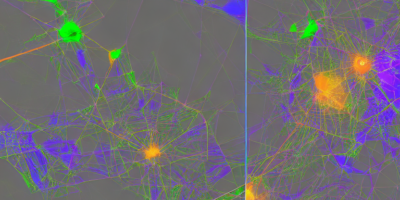In this article, we explore the challenges of state estimation in networked control systems with irregular sampling sequences. These sequences are commonly used to reduce computation and communication loads, but they can make it difficult for estimators to recover the internal state of the system. We propose a novel approach that leverages the concept of observable sets to handle this limitation.
Observability is Like a Lid on a Container
In this context, observability refers to the ability of the estimator to distinguish between different states of the system based on the available data. Think of observability as a lid on a container – if the lid is too loose, some information might escape, but if it’s too tight, nothing will come out. In networked control systems with irregular sampling sequences, the observability of the state can be improved by carefully selecting the sampling times.
Finding the Right Lid
To achieve this, we introduce the concept of observable sets – a set of time intervals during which the system is observable. These intervals are determined by the sampling times and the system’s properties. By selectively choosing these intervals, we can improve the estimator’s ability to distinguish between different states of the system.
Adaptive Sampling for Better Estimation
Our approach also takes into account the adaptive nature of the system – as the system changes over time, the observable sets must also adjust to maintain accurate state estimation. This is like adjusting the lid on a container based on how much water is inside – if you add more water, the lid needs to be loosened, but if you remove some water, the lid can be tightened.
Real-World Implications
In real-world scenarios, this approach can significantly improve the accuracy of state estimation in networked control systems with irregular sampling sequences. By selectively choosing the times when data is collected, we can reduce computational and communication loads while still maintaining accurate estimates of the system’s internal state. This has important implications for applications such as autonomous vehicles, where accurate state estimation is crucial for safe navigation.
In summary, our article proposes a novel approach to handle irregular sampling sequences in networked control systems by leveraging observability sets. By carefully selecting the times when data is collected, we can improve the accuracy of state estimation while reducing computational and communication loads. This has important implications for real-world applications where accurate state estimation is crucial.
Electrical Engineering and Systems Science, Systems and Control
Sampling-Based Time-Discounted i-IOSS: A Comprehensive Study



